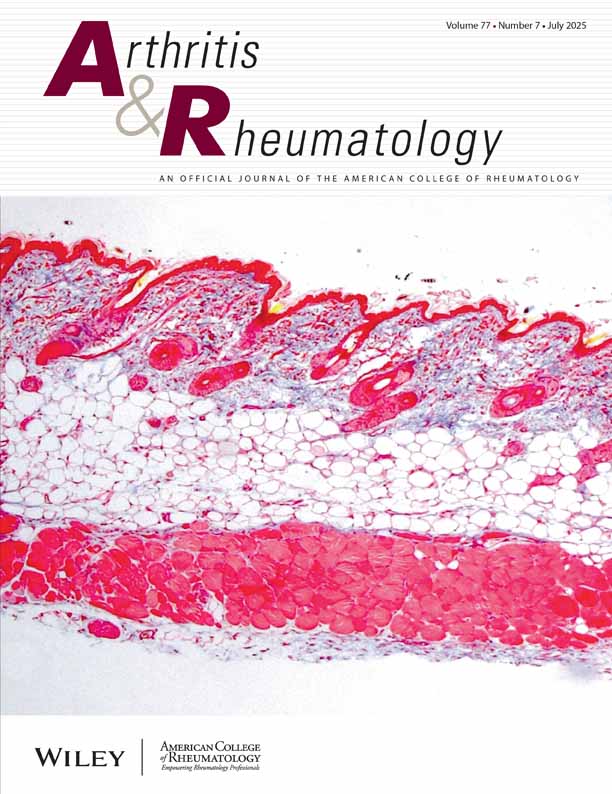Adenovirus-mediated gene transfer of insulin-like growth factor 1 stimulates proteoglycan synthesis in rabbit joints
Abstract
Objective
To examine the effect of insulin-like growth factor 1 (IGF-1) on the regulation of cartilage synthesis and other articular events in vivo.
Methods
A first-generation adenoviral vector expressing human IGF-1 (AdIGF-1) from the cytomegalovirus promoter was constructed. Particles of AdIGF-1 (5 × 109) were injected through the patellar tendon into normal rabbit knee joints and rabbit knee joints with antigen–induced arthritis (AIA), with the same dose of a control adenoviral vector injected into the contralateral knees. Lavage fluids were obtained from rabbit knee joints on days 3 and 7 postinjection and used for analysis of IGF-1 expression, white blood cell infiltration, and cartilage breakdown. Cartilage chips from rabbit joints were used for assay of new proteoglycan synthesis, and tissues also were harvested from the dissected knees for histologic study.
Results
Intraarticular injection of AdIGF-1 resulted in a mean of 180.6 ng/ml of IGF-1 expression in the lavage fluid from rabbit joints. IGF-1 expression stimulated new proteoglycan synthesis in both naive and AIA rabbit knees, but had no significant chondroprotective or antiinflammatory effects. Histologic analysis showed that elevated levels of IGF-1 expression in both normal and arthritic knees had no adverse pathologic effects on synovium or adjacent muscles.
Conclusion
Gene transfer of IGF-1 into rabbit knee joints promotes proteoglycan synthesis without significantly affecting inflammation or cartilage breakdown. In addition, no adverse effects following intraarticular IGF-1 gene delivery were observed. Thus, local gene transfer of IGF-1 to joints could serve as a therapeutic strategy to stimulate new matrix synthesis in both rheumatoid arthritis and osteoarthritis.




